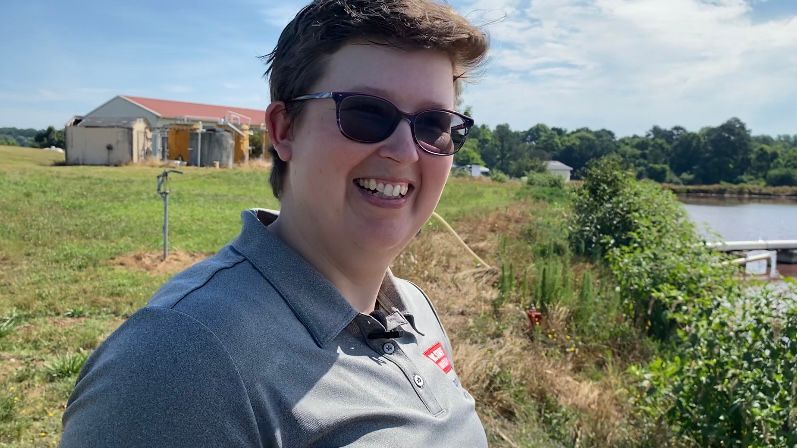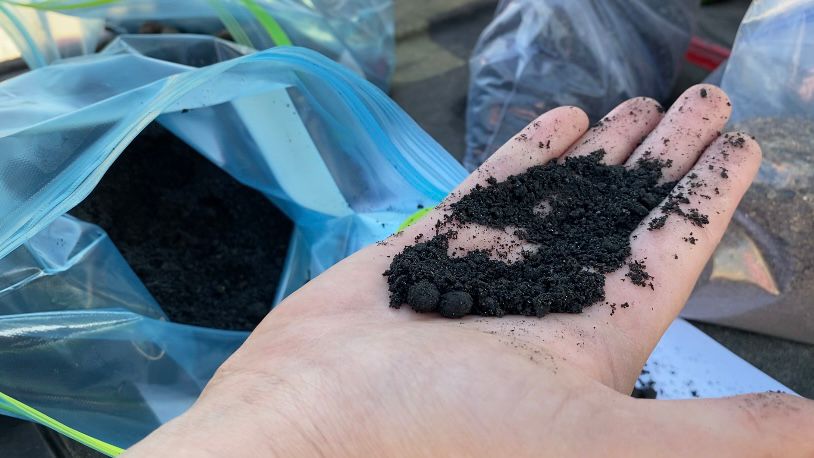RALEIGH, N.C. — With the help of researchers at N.C. State, North Carolina's swine industry, one of its most profitable agriculture sectors, could soon be making money off its waste as well.
According to N.C. State, there's over $900 million of phosphorus sitting in swine lagoons across the state. That nutrient supply has the power to change the way crops are grown on farms everywhere.
“The use of manure as a fertilizer has always been there and it has always been something that people maybe have not valued as much as they should have,” said Steph Kulesza of the school's Crop and Soil Science Department.

Kulesza says the state's swine lagoons, which contain waste from hog farms, are a resource that has been underutilized.
“There was a study that came out in 2021 that looked at what are called 'manure sheds' — so these are areas of really intensive animal production where we have more manure phosphorus than what can agronomically be utilized in those areas,” Kulesza said. “They looked at how far manure would have to travel to be agronomically utilized across the land, and North Carolina is part of the biggest manure shed in the United States.”
The lagoon systems are the most economical and practical way to contain swine waste in North Carolina, she says, although a moratorium preventing the construction or expansion of lagoons has limited the growth of the industry as a whole.

“When you think about a lagoon there's really three zones — you have a sludge layer at the bottom where your really digested material settles,” Kulesza said. “You'll have minerals and really recalcitrant compounds in the bottom ... the ability to remove that and economically transport it elsewhere would be a huge benefit.”
Kulesza said working with the grower community is vital to the success of this project because it's the farmers who asked her to pursue this idea in the first place.
“The industry is looking at all these different ways to maximize the value that's coming off of these farms and maximizing the revenue for the producers who are raising these animals,” Kulesza said. “Something like this has the potential to really allow everyone to breathe a little easier about sludge management.”
The fertilizer is still in trial stages and has yet to hit the market, but Kulesza says by the end of the year there will be functional solar waste dryers in North Carolina that will open the door to potential partnerships with fertilizer companies and other industries.
“It fits into our commercial production systems that are for feed, fiber, fuel crops,” Kulesza said. “Eventually I do see it getting approved to be used in food crops, but it has to go through the process of making sure that there's no potential pathogens and we are safe about how we utilize it.”



